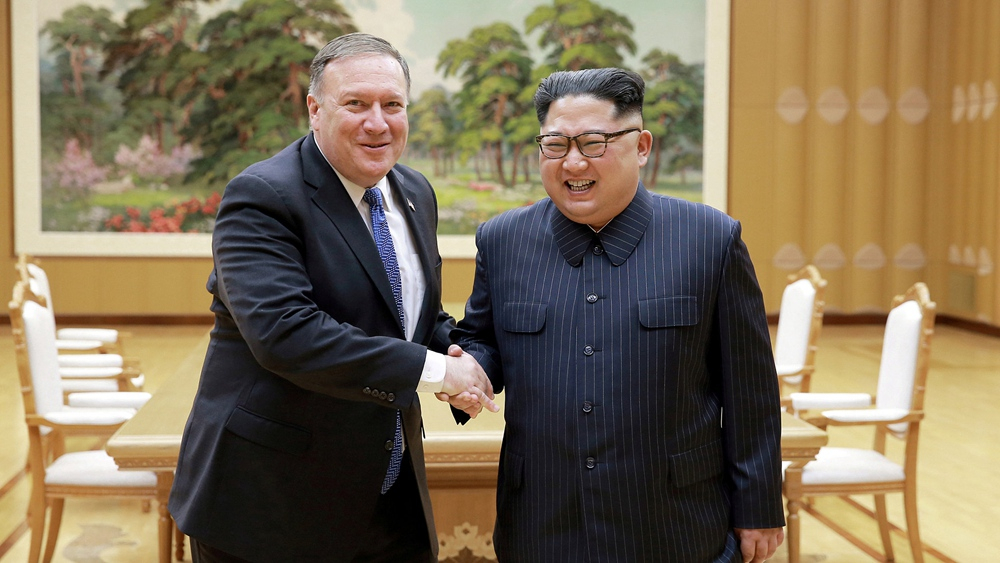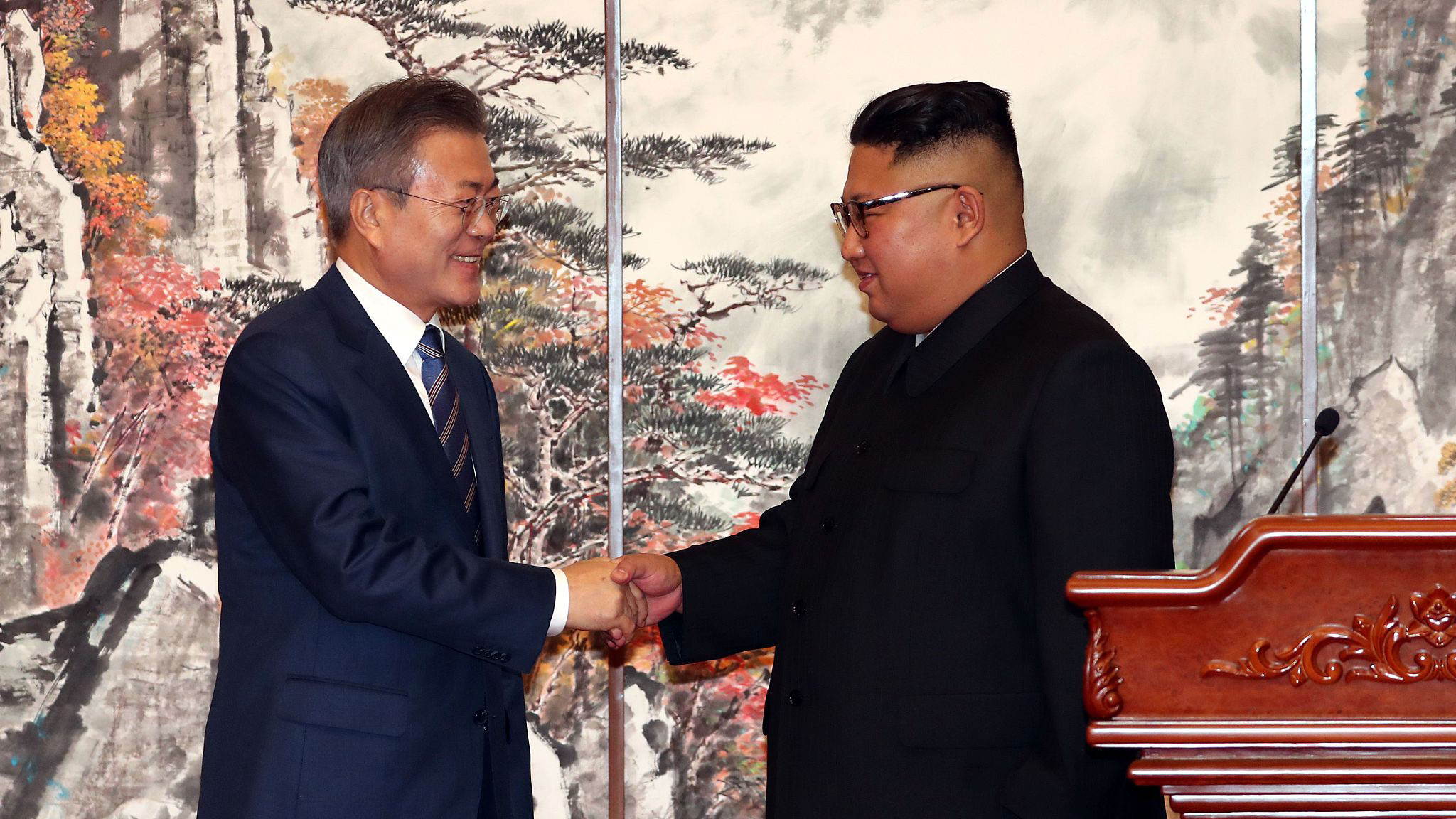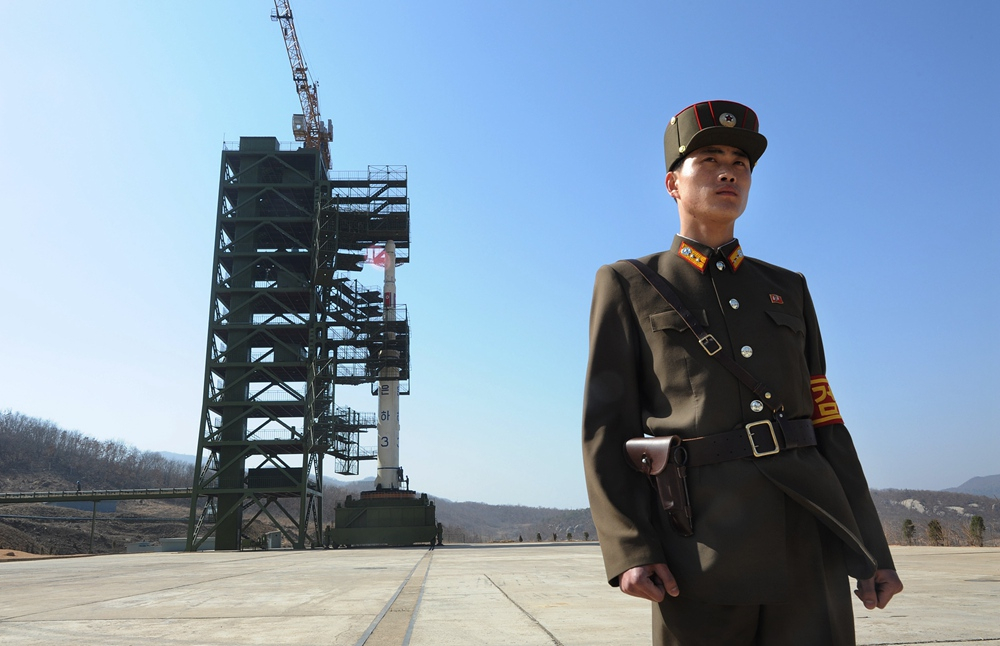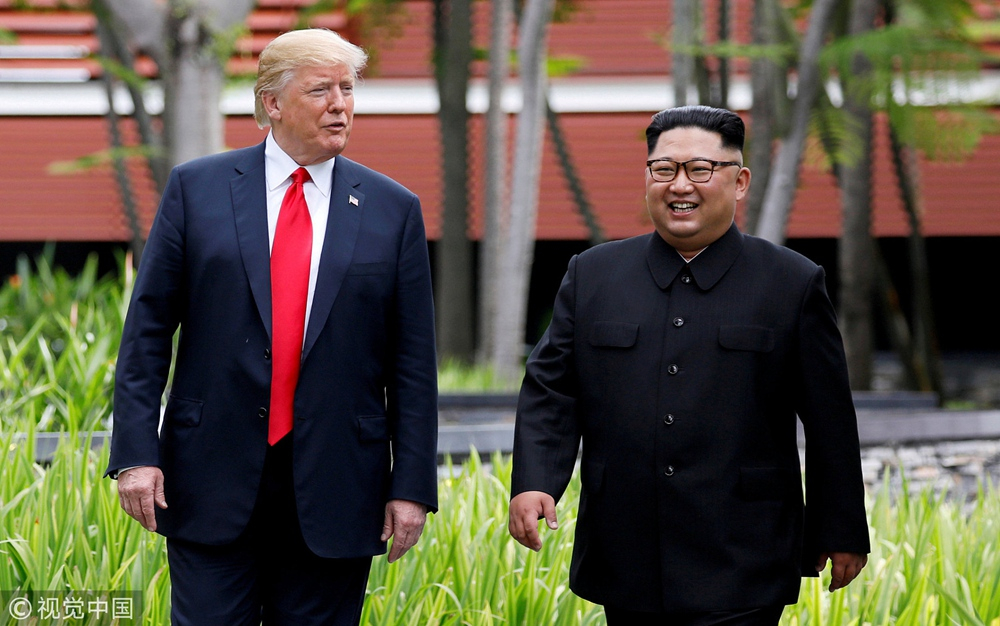
Politics
08:24, 20-Sep-2018
Pompeo: US ready to negotiate with DPRK 'immediately'
Updated
08:14, 23-Sep-2018
CGTN

US Secretary of State Mike Pompeo welcomed "important commitments" made by Pyongyang during Wednesday's inter-Korean summit, adding that Washington was ready to begin negotiating immediately to achieve the denuclearization of the Democratic People's Republic of Korea (DPRK) "by January 2021."
In a statement, Pompeo said he spoke with his DPRK counterpart Wednesday morning and invited him to meet in New York next week on the sidelines of the United Nations General Assembly.
The statement came after DPRK leader Kim Jong Un agreed to make a historic visit to Seoul soon and close a missile testing site in front of international inspectors in a meeting with South Korea President Moon Jae-in.
14:06

Kim and Moon signed a document to strengthen inter-Korean ties. Building on a growing rapprochement, they agreed to create a facility to hold family reunions at any time, work towards joining up road and rail links, and mount a combined bid for the 2032 Olympics.
"On the basis of these important commitments, the United States is prepared to engage immediately in negotiations to transform US-DPRK relations," said Pompeo.
In addition to Pompeo's meeting with DPRK Foreign Minister Ri Yong Ho, "we have invited North Korean (DPRK) representatives to meet our Special Representative for North Korea (DPRK), Stephen Biegun, in Vienna, Austria at the earliest opportunity," the statement continued.
"This will mark the beginning of negotiations to transform US-DPRK relations through the process of rapid denuclearization of North Korea (DPRK), to be completed by January 2021, as committed by Chairman Kim, and to construct a lasting and stable peace regime on the Korean Peninsula," it added.

A DPRK soldier guards a Unha-3 rocket at the Sohae Satellite Launch Station in Tongchang-ri, DPRK. /VCG Photo
A DPRK soldier guards a Unha-3 rocket at the Sohae Satellite Launch Station in Tongchang-ri, DPRK. /VCG Photo
Kim's trip to Seoul would be the first by a DPRK leader since the end of the 1950-53 Korean War, when hostilities ceased with an armistice rather than a peace treaty, leaving them technically in a state of war.
In their agreement, the DPRK also said it would "permanently close" a missile engine testing site and launch facility in Tongchang-ri "in the presence of experts from relevant nations."
Read more:

US President Donald Trump (L) and DPRK leader Kim Jong Un walk after lunch during their summit at the Capella Hotel on Sentosa Island in Singapore, June 12, 2018. /VCG Photo
US President Donald Trump (L) and DPRK leader Kim Jong Un walk after lunch during their summit at the Capella Hotel on Sentosa Island in Singapore, June 12, 2018. /VCG Photo
The result of the Kim-Moon summit also drew an enthusiastic response from US President Donald Trump, who called Kim's pledges part of "tremendous progress" with Pyongyang on a number of fronts, and hailed "very good news" from the summit.
"He's calm, I'm calm – so we'll see what happens," Trump told reporters, referring to Kim, who he met at an unprecedented summit in Singapore in June.
"It's very much calmed down," added Trump, who last year engaged in a heated war of rhetoric with Kim in which he threatened to totally destroy the DPRK.
Trump called off a planned visit to the DPRK by Pompeo late last month, citing a lack of "sufficient progress" in denuclearization talks.
Analysts said Kim's pledges could inject fresh momentum into stalled nuclear negotiations between Washington and Pyongyang and lay the groundwork for another Trump-Kim meeting.
(Cover: DPRK leader Kim Jong Un (R) shakes hands with US Secretary of State Mike Pompeo in Pyongyang, DPRK, May 9, 2018. /KCNA Photo via VCG)
Source(s): AFP
,Reuters

SITEMAP
Copyright © 2018 CGTN. Beijing ICP prepared NO.16065310-3
Copyright © 2018 CGTN. Beijing ICP prepared NO.16065310-3